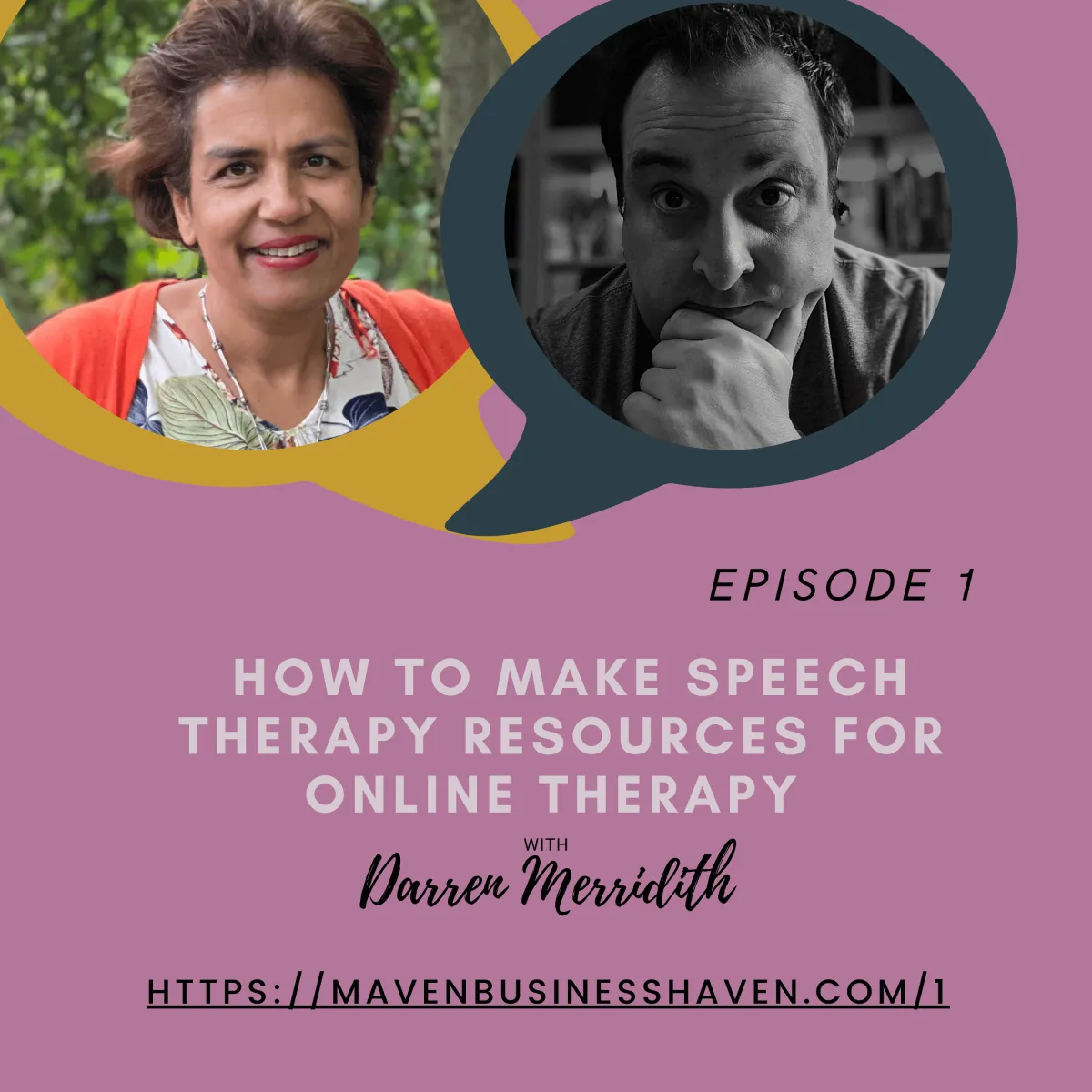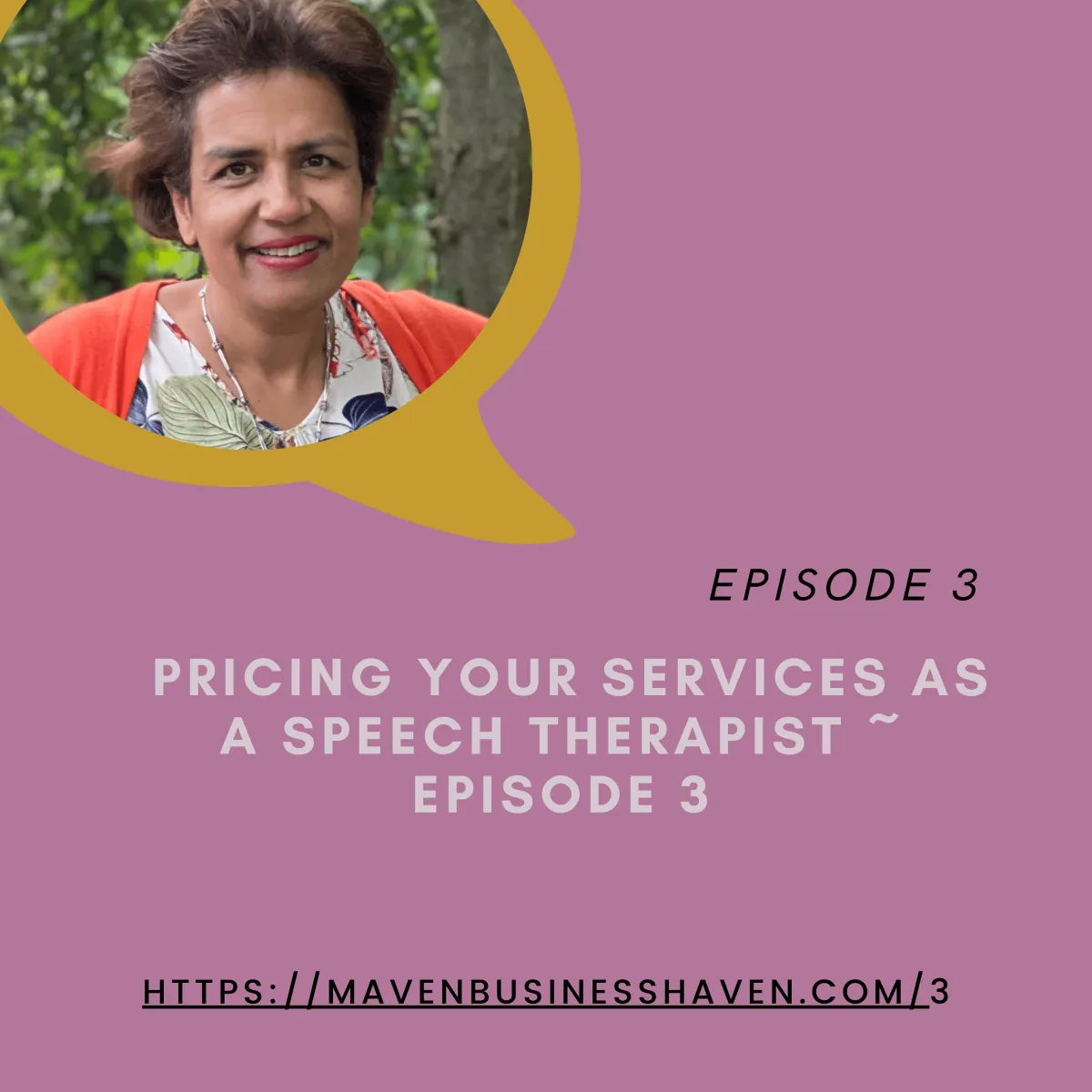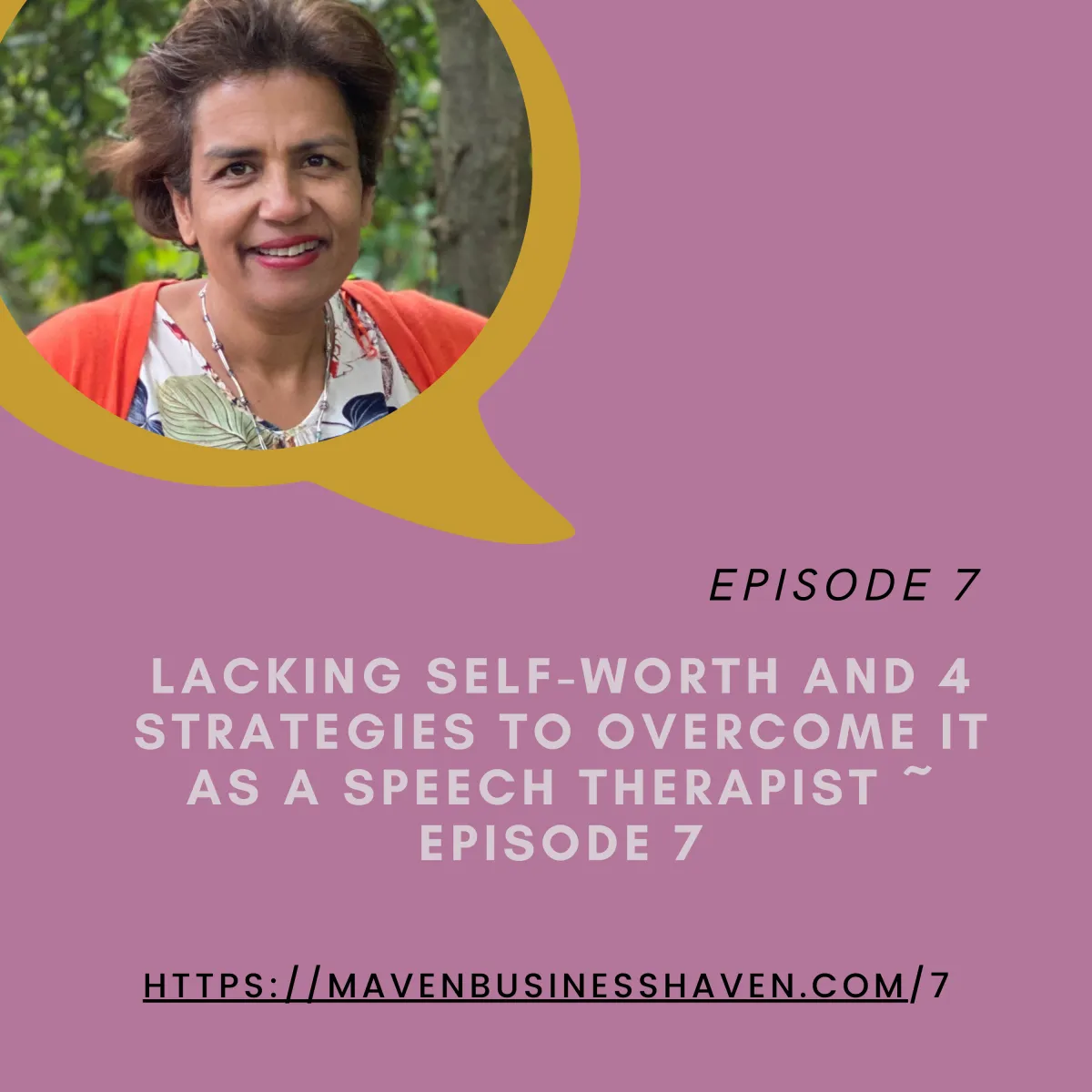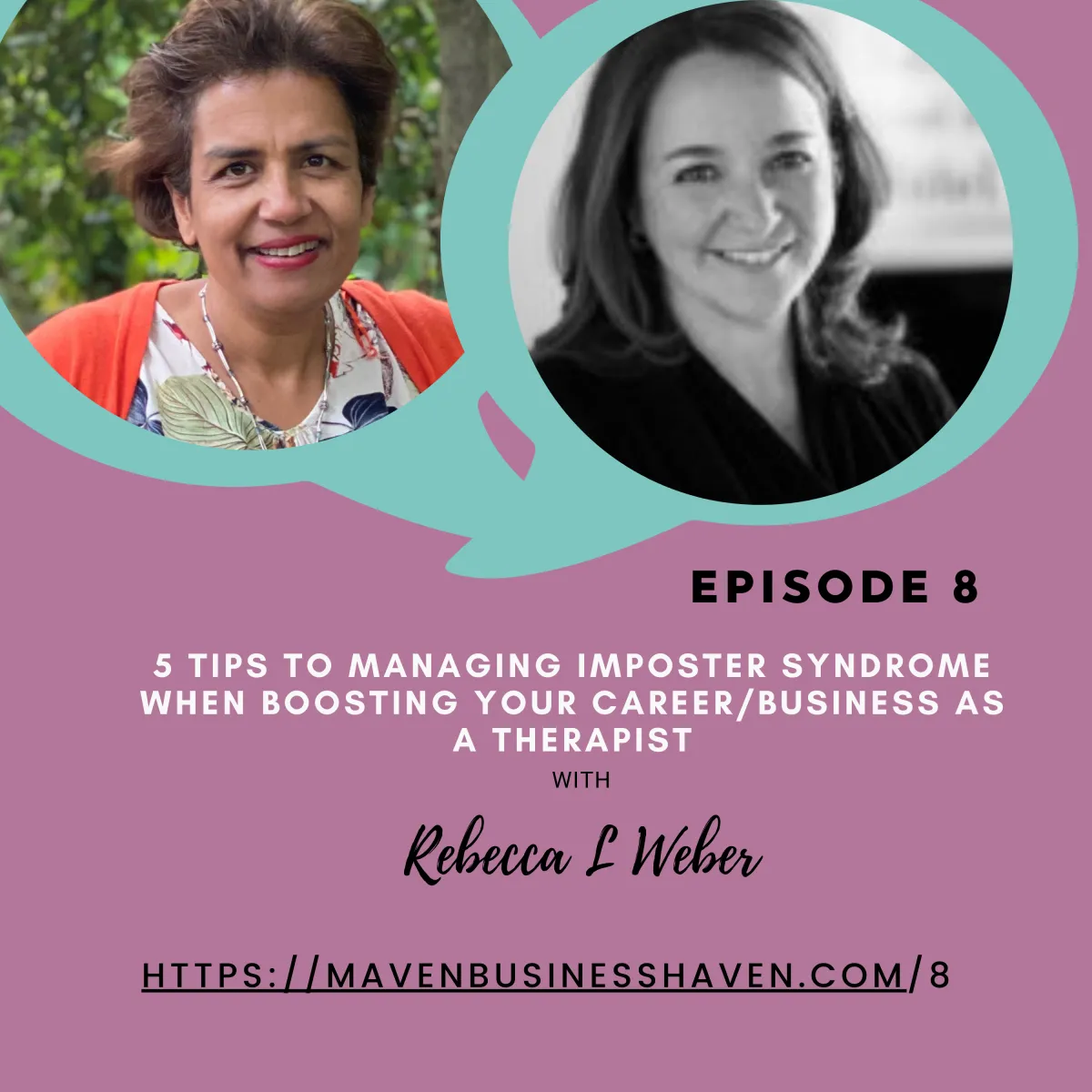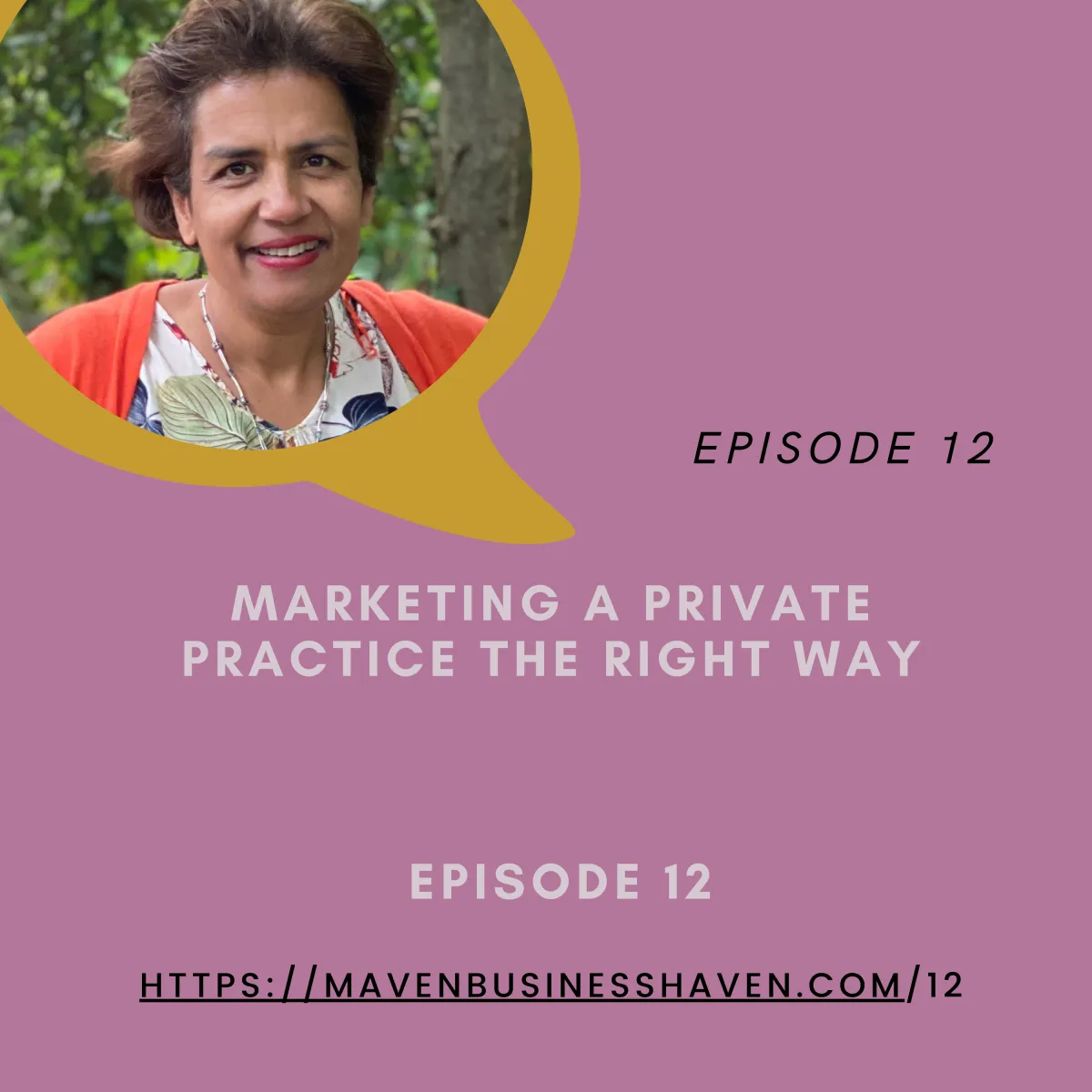VLOG
Audio Inspiration
Listening to podcasts inspires you, gives you clarity on what steps you need to take in your Therapy Business
Are you thinking of creating a website that resonates with your target audience and with space to jot down your ideas as you work through each step?
Then you need our
FREE WEBSITE WORKBOOK & PLANNER

LATEST EPISODES

Crafting a Business Plan for Speech Therapists
Crafting a Business Plan for Speech Therapists
Embarking on a journey into private practice as a speech therapist is an exciting yet challenging endeavour. While your passion lies in improving the lives of individuals with communication disorders, the realities of running a business require a different set of skills. Crafting a solid business plan is a vital step that not only helps clarify your goals but also ensures the sustainability and growth of your practice. This comprehensive guide will break down the key elements needed to design a successful business plan based on research insights, helping you navigate both the clinical and operational aspects of your practice.
Why Business Planning Matters for Speech Therapists
A well-structured business plan is not just a formality—it's the foundation that sets your practice up for success. Whether you're looking to offer flexibility in your services, specialise in a niche area of speech therapy, or gain autonomy over your career, your business plan is your roadmap to achieving those goals.
According to Stein & Kroll (2021), a thoughtfully designed business plan helps speech therapists in private practice streamline operations, set realistic financial goals, and maintain a balance between patient care and business responsibilities. Without one, therapists risk being overwhelmed by administrative duties, potentially compromising their ability to provide the high-quality care their patients need.
By understanding the key components of a business plan, you ensure that you can not only meet the clinical demands of your practice but also build a sustainable business model that can grow and evolve with you.
Aligning Your Practice with Your Values
One of the first steps in creating a business plan is ensuring it reflects your core values and motivations as a speech therapist. Private practice offers freedom, but it also comes with increased responsibility. Identifying what drives you—whether it's greater flexibility, specializing in a specific population, or controlling your schedule—will help guide your business decisions.
Understanding Your "Why"
Bailey et al. (2020) emphasise the importance of defining the purpose behind starting your practice. Why do you want to enter private practice? Is it because you want more control over the type of clients you work with or because you crave a more personalised approach to therapy? Understanding your motivations will shape the way you approach every aspect of your business—from marketing strategies to pricing models.
Here are some common reasons speech therapists transition into private practice:
Flexibility: You want to control your work-life balance by managing your schedule and patient load.
Specialisation: You're passionate about a niche area of speech therapy, such as paediatric language disorders, and want to focus solely on it.
Autonomy: You desire the independence of managing your own clinical decisions and business operations without being tied to an employer's constraints.
Once you have a clear understanding of your “why,” the rest of your business planning will fall into place.
Choosing the Right Practice Model
Your business plan should outline the type of practice model that aligns with your goals. The structure of your practice—whether home-based, office-based, or mobile—will have a significant impact on your operational costs, client convenience, and professional image.
Lynch (2019) highlights three main practice models speech therapists tend to choose from:
Home-based practice: This is often the most cost-effective option because you can operate from home, which eliminates the need for renting office space. However, it requires a dedicated and professional area to see clients, and you must ensure that your home environment is suitable for therapy sessions. Considerations include privacy, noise levels, and overall professional appearance.
Office-based practice: Renting an office provides a more traditional, professional setting and can help build credibility with clients. While office rent can be a significant overhead, this model also allows for expansion, such as hiring additional therapists or support staff in the future. You'll need to factor in costs such as utilities, office furnishings, and equipment.
Mobile therapy services: Offering in-home or teletherapy services can be highly appealing to clients, particularly for those with mobility issues or busy schedules. However, this model requires careful consideration of travel time, transportation costs, and the logistical challenges of delivering therapy services outside a fixed location.
Each of these models has its pros and cons, so you'll need to weigh them against your financial resources, long-term goals, and the needs of your target client base.
Pros and Cons of Different Practice Models:

Financial Planning: Budgeting for Success
For many speech therapists, the financial side of private practice can seem overwhelming. Yet, a strong financial plan is essential to ensure your practice can sustain itself and grow over time. This section will cover the key components of financial planning, from understanding startup costs to setting competitive rates.
Startup Costs
Your business plan should include a detailed estimate of your startup costs. These will vary depending on the practice model you've chosen, but at a minimum, you'll need to consider:
Therapy materials and assessment tools: Essential for providing high-quality services.
Office furnishings: If you're renting a space, you'll need desks, chairs, and other furnishings.
Technology: A reliable computer, printer, software for record-keeping, and possibly a card reader for processing payments.
Professional website: Creating an online presence is crucial for attracting clients. Budget for web design, hosting, and ongoing maintenance.
Nguyen & Harris (2022) suggest allocating additional funds for unexpected expenses, such as insurance premiums, business registration fees, and potential marketing costs.
Here is an example breakdown of typical startup costs:

Setting Competitive Rates
Determining your rates is one of the most critical financial decisions you’ll make. While it may feel uncomfortable to focus on pricing as a caring professional, it’s essential for sustaining your practice. When setting your rates, consider the following:
Experience and expertise: More specialised or experienced therapists can justify higher rates.
Local market rates: Research what other therapists in your area charge to remain competitive.
Overhead costs: Make sure your rates cover all your expenses, including rent, utilities, and non-billable hours spent on tasks like documentation.
Time for non-billable tasks: Preparation, travel, and administrative work should be factored into your rate setting.
Speech therapists often find a balance between charging what their expertise is worth and ensuring their services are accessible to the clients who need them. Nguyen & Harris (2022) recommend starting with a modest rate and adjusting as your practice grows and your reputation strengthens.
Legal and Administrative Considerations
Before you can open the doors of your private practice, you must navigate several legal and administrative hurdles. Ensuring that your business is legally sound will protect both you and your clients, laying the foundation for long-term success.
Business Registration and Insurance
You’ll need to decide on a business structure, typically as a Sole Trader or Limited Company, depending on your location and tax considerations. Consult an accountant or legal expert to determine which structure best suits your needs. Additionally, professional liability insurance is essential to protect yourself from legal claims related to your practice.
Data Protection and Confidentiality
As a healthcare professional, client confidentiality is paramount. You’ll need to comply with data protection regulations, such as the General Data Protection Regulation (GDPR) in Europe or HIPAA in the U.S., which dictate how client information must be handled and stored. Failure to comply with these laws can result in severe penalties, so it's important to have robust systems in place from the beginning.
Hartman & Fox (2023) stress that implementing secure electronic health record (EHR) systems is one of the most efficient ways to protect client data while simplifying record-keeping and appointment scheduling.
Marketing Your Private Practice
Marketing is a crucial but often overlooked component of building a successful private practice. A strong marketing plan ensures that your ideal clients can find you and that you build a reputation as a trusted professional in your community.
Building a Digital Presence
In today's digital age, having an online presence is non-negotiable. Your website should clearly communicate your services, areas of specialisation, and contact information. Riley (2022) emphasises the importance of a professional-looking website as many clients will search for therapy services online before deciding who to contact.
In addition to a website, consider using social media and online advertising to raise awareness of your practice. Platforms like Facebook, Instagram, and LinkedIn are effective tools for connecting with potential clients and showcasing your expertise.
Networking with Other Professionals
Networking is another powerful tool for growing your practice. Building relationships with healthcare providers such as doctors, occupational therapists, and psychologists can lead to valuable referrals. Joining local professional associations or attending community events can help you establish a presence in your local market.
Bringing It All Together: Crafting Your Actionable Business Plan
Now that we've explored the key elements of a business plan, it's time to bring it all together. Here’s a step-by-step action plan to guide you:
Define your vision: Start by outlining your motivations and long-term goals for the practice.
Select your practice model: Research and choose the structure that best fits your needs.
Estimate your startup costs: Create a budget that accounts for both necessary expenses and unforeseen costs.
Set your rates: Research local market rates and consider your overhead to establish competitive pricing.
Address legal requirements: Register your business and secure necessary insurance, along with data protection measures.
Create a marketing plan: Build a digital presence and develop a strategy for networking with other healthcare professionals.
Remember, your business plan is a dynamic document that will evolve as your practice grows. Review and update it regularly to ensure that your practice continues to meet both your professional and financial goals.
Ready to Turn Your Speech Therapy Dreams into Reality?
The process of creating a business plan may seem daunting, but it’s an essential step toward building a thriving private practice. With careful planning, a clear vision, and a commitment to quality care, you can build a successful practice that reflects your values and serves your clients.
Join the Maven Business Haven Club
Need additional guidance? The Maven Business Haven Club offers resources tailored specifically to speech therapists in private practice, including step-by-step business planning guides, expert advice, and a supportive community.
Sign up today using the discount code HNPEO75K for 50% off your membership.
By establishing a strong business foundation, you’re ensuring that your speech therapy practice will continue to change lives for years to come. Take the first step and start building the private practice you’ve always dreamed of!

Hi, I'm Bev
a seasoned speech therapist with over 30 years of global experience.
When I’m not helping others communicate effectively, I'm enjoying precious family time with my husband and three sons. I also love exploring new destinations and hosting art journaling retreats.
But here's what truly fuels my passion: guiding therapists and coaches to build thriving practices without imposter fears or tech overwhelm.
My mission is clear: I want to empower more therapists and coaches to confidently share their talents with the world, thriving in purpose and creativity.
If you’re ready to turn your passion into a purpose-driven practice, count me in to support you every step of the way.






Fancy Joining us on a Retreat in Italy and meet other like-minded therapists and coaches?
Discover the transformative power of journaling to unlock your full potential as a therapist or coach. Our carefully crafted journals are designed to guide you through insightful self-reflection, goal-setting, and personal growth exercises, providing you with a valuable tool to delve deep into your thoughts and emotions.
By investing in your mind through these workbooks & journals, you'll gain clarity, develop new perspectives, and strengthen your practice, ultimately empowering yourself to better support and guide your clients on their own journeys of growth and transformation.
Don't miss this opportunity to enhance your skills and take your profession to new heights with the aid of our thoughtfully designed journal.


Hi there, I'm Bev Jessup
Even though I play an inspiring entrepreneur on the internet, I’m also a real person and a tired mother of three grown-up adorable boys.
I work purely online as a speech therapist and online consultant whilst my hubby Adam goes off to work.
I’m passionate about changing the world. And one extremely impactful way to do that is to empower speech therapists to share their talents worldwide and put more money in their hands in the process.

"My role in the world is to help therapists and coaches with their tech fears so that they can create a profitable online business without burnout"

You know that horrible feeling in your stomach when you feel that you don't want to work so many hours just to make ends meet?
Or when you procrastinate starting your own private practice because you don't know where to start?
Or the fact that your income has stagnated and you don't know how to push it to the next level? Or you are wondering how to get more clients without having to drop loads of fliers off at the GP surgeries or schools? Or you have dreamed of travelling and working at the same time?
I get you and I help therapists overcome these obstacles so they lead a more fulfilled life and business
Thank you for tuning in and letting me part of your journey. I know your dream is worth it so I want to encourage you to follow your dreams
PRIVACY POLICY TERMS OF SERVICES CONTACT US

